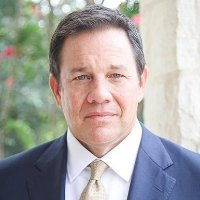 Cibolo White Collar Crime Lawyers, Texas
Cibolo White Collar Crime Lawyers, Texas
Sponsored Law Firm
-
 x
x

Click For More Info:
-
Law Office of Robert R. Jones III
2411 Emancipation Ave, Suite 202, Houston, TX 77004» view mapCriminal Defense Expert Representation for Reasonable Rates
If you need representation, call me 24/7.
800-883-8760
Sponsored Lawyers
1-4 of 4 matches
Criminal, Juvenile Law, White Collar Crime, Federal Trial Practice, DUI-DWI
Mr. Lock began his career in civil litigation and then opened the doors of The Law Office of Sam H. Lock in 2000. For more than 10 years, he has been serving citizens throughout the state of Texas, in cities like San Antonio, Seguin, Pecos, Waco, Austin, Del Rio, El Paso and Midland. His commitment to his clients is unmatched and his passion for justice shows in his dedication to his work and his community. Professional Memberships/Associations: Board of Directors, Texas Criminal Defense Lawyers Association Board of Directors, San Antonio Criminal Defense Lawyers Association Member, American Inns of Court William Session Inn Sam H. Lock has tried every type of criminal case, from murder to the most minor misdemeanor. He brings his legal knowledge, litigation skills and a personal touch to his representation of those accused of crimes. Largely because of his hands-on approach, Sam has been recognized four times by Texas Monthly as a "Rising Star" in the legal profession (2006, 2008, 2009, 2010 and 2011). He has also been recognized three times in Scene in S.A. Monthly as one of San Antonio’s Best Lawyers. Sam frequently lectures at continuing legal education seminars, educating other attorneys on developments in the law, evidence, procedure and consequences of criminal convictions. He represents people from all walks of life and is firmly committed to fighting for his clients in courts throughout Texas.
(more)


 Robert Jones San Antonio, TX
Robert Jones San Antonio, TX AboutLaw Office of Robert R. Jones III
AboutLaw Office of Robert R. Jones III Practice AreasSpecializations
Practice AreasSpecializations

